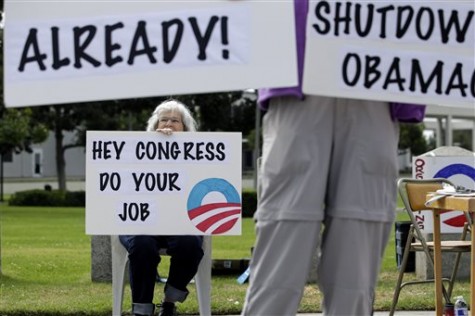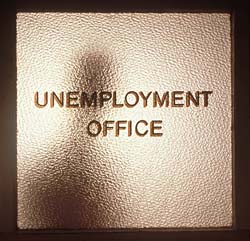Faculty Column: The Founding Fathers would be upset
More stories from Robert McCreary
On the surface, the title of this piece might imply that the Founding Fathers would be upset at the results of the 2016 election. They may indeed be upset but that is not the intent of the title.
The Founding Fathers would be upset at the reaction of many people who ended up on the losing side of the Trump victory. Over the past several days I have fielded questions and heard rants, complaints, and fears on the news and on social media about how Trump and the Republicans are going to run roughshod over America. My response to all is, “Yes, they could … but only if you let them.”
Let me just say right from the get-go that I do not consider myself a Democrat or Republican. I did not even vote for president this year. I skipped over that part of the ballot and voted in all the other contests below it when I entered the voting booth. I could not hold my nose and vote for candidates I felt did not stand for the principles of liberty which I list as limited government, individualism, peace, tolerance, and free markets. I chose to declare myself a “voting free agent” by casting my non-vote or “undervote.” My message to future candidates and parties hopefully was, “I vote, but I will not vote for your candidates unless they stand for liberty.” In my opinion, none of them did so none of them got my vote.
I believe the Founders would be upset because they prepared us for this type of thing and we seem to have forgotten. They purposely built in many roadblocks and checks on governmental power to ensure as best they could that no one person or group becomes all-powerful and uses that power to oppress individuals.
The Constitution they created in the summer of 1787 included separating powers between the three branches of government so no branch at the federal level could consume all the power. They also added a federal system in order to further check the power of the federal government by giving the states all other powers not expressly granted to the federal government. At the state ratifying conventions and in many future writings, people like James Madison, Patrick Henry, and Thomas Jefferson went as far as to say that it is the obligation of the states and local governments to interpose or nullify any federal attempt to go beyond these powers. Basically, it was understood to them and the early Americans that it was their duty to not comply with anything they interpreted as unconstitutional on the part of the federal government. They even built in one last measure in case all three levels of government – federal, state, and local – colluded against individual liberties. The 2nd Amendment.
Americans tend to forget that “we the people” means us. It does not say “we the government.” We as free individuals have the power. Our representatives work for us and too often these elected officials forget this simple fact. That is why I believe the Founders would say to us now, “If you think the government is overreaching its Constitutional authority and infringing on individual liberties then simply do not comply!” Government power first requires the “consent of the governed.”
When my students hear this, the first question I get is usually “Can we say no to the federal government?” And every time it is asked, Thomas Jefferson rolls over in his grave.
Federal law currently says that marijuana is completely illegal but a growing number of states are refusing to comply. It is also Federal as well as Pennsylvania state law that says illegal immigrants, if discovered, may be arrested and possibly deported. Philadelphia (and San Francisco as well) have basically said they don’t care what the Federal and State governments think. These cities have declared themselves to be “sanctuary cities” for illegal immigrants. This means they will not use city resources to enforce several federal immigration laws. So, yes … people at the state and local levels can and do, refuse to comply with federal and/or state law in many ways. There can be consequences to this of course, but these cases show that it can be done.
When I explain how and why this works, I usually show a pyramid like the following:
The F stands for Federal, the S stands for State, and the L stands for Local. When the federal government enforces federal law, federal agents (the top of the pyramid) cannot possibly do all the work. There just aren’t enough of them. They need the much larger number of state and local officials and law enforcement to help out. Many think state and local officials are obligated to help. They are not. State officials work for the state. They are not federal government employees. They don’t have to comply. They very often do but they do not have to. Neither do local officials. You may recall that this is a big reason why Prohibition ended. The state and local authorities stopped enforcing Prohibition laws and the federal government could not make up the difference. There just were not enough federal agents to enforce all the rules. And so it ended.
With regards to this year’s election, the people who are afraid are not really afraid of Donald Trump. He has been around for 70 years and nobody saw him as a threat to individual liberties until his 69th year. What people are afraid of is the power they think he will soon have. But that power is not a given. In fact, many liberty-minded people would say that many of the policies he campaigned on involve powers that presidents are not allowed to wield according to the Constitution. Unfortunately, when a policy is discussed, most Americans’ first question is “Is this a good idea?” Instead, the Founders recommended a better first question – “Is this allowed?” Too often, people ignore the Constitution and support the policy if they think it is a good idea. However, pushing the Constitution to the side sets a very dangerous precedent. Eventually, a future president will use that same authority in a way you don’t like. And that’s what Trump’s critics are afraid he will do.
Over many decades, both political parties have looked the other way when “their guy” was in office and overstepped his authority. Two administrations ago, President George W. Bush used “executive signing statements” and also applied the concept of “preemptive war” to set his ideas into motion. Republicans didn’t challenge it because he was one of them and they agreed with the ideas. More recently, President Obama famously said “I have a pen and a phone and if Congress will not act, I will.” His supporters liked his ideas so they and fellow Democrats cheered. Today, Trump’s critics (both Democrat and Republican) are realizing that Trump has a pen and a phone as well.
Instead of focusing on what he may or may not do, the Founders would recommend we focus on what the Constitution intended – a limited government that treats us all as individuals with liberties that no person, administration, or political party can work to undue.
Like a lot of challenging events in life, there is always a silver lining. The lining here is an opportunity for all Americans to be reminded of the true reason for our written Constitution and Bill of Rights – to create a foundation of liberty where every individual is protected regardless of what person or group is in power. A foundation where the extent of those liberties are never at the mercy of whoever or whatever party happens to be in charge at the moment.
Therefore, it is our duty to force everyone in government, the current administration and every future one, to follow the rule of law and the principles of liberty outlined in our Constitution and the Bill of Rights.
The Constitution and the Bill of Rights will not defend itself. It is up to us.
Start paying attention.











